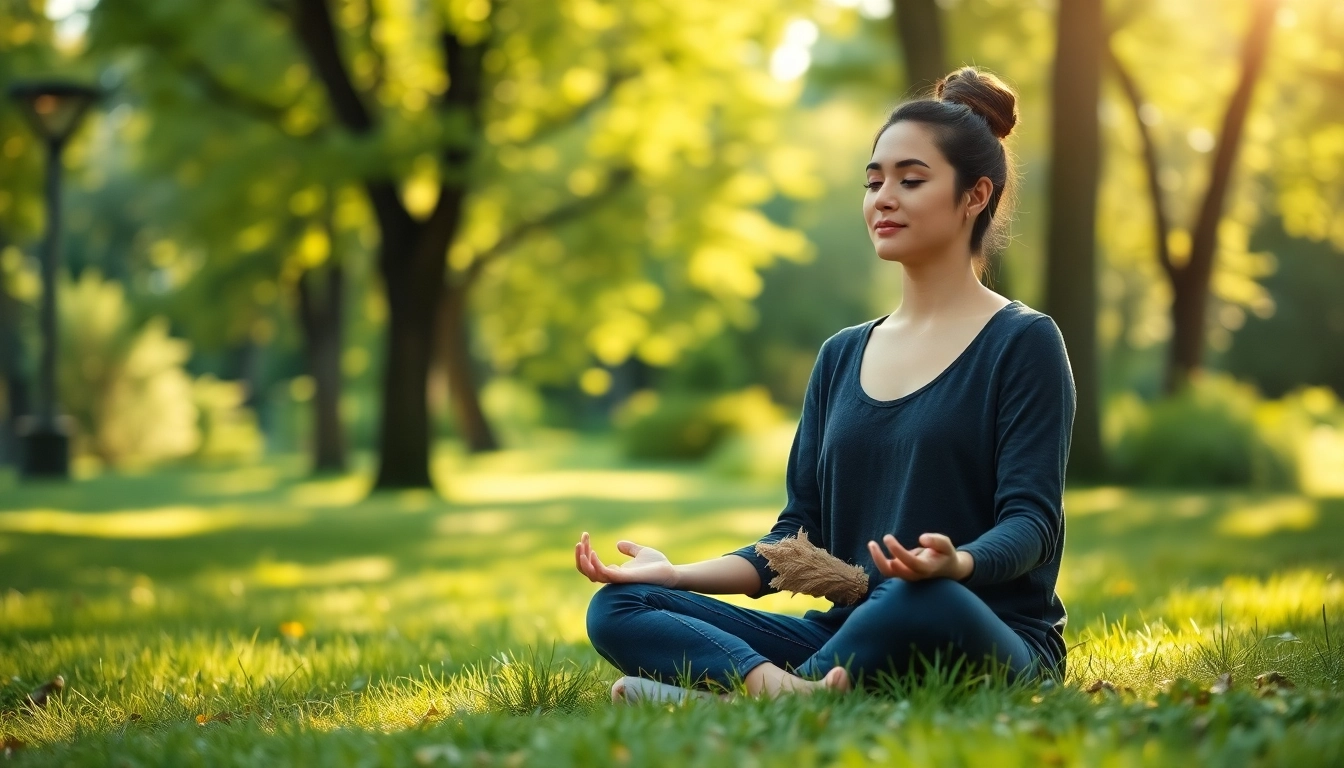Understanding Anxiety and Its Impact
Anxiety is a multifaceted emotional experience that affects millions of people globally. With rising stress levels across various facets of life, understanding anxiety has become increasingly important. This article delves into coping strategies and evidence-based methods for dealing with anxiety, offering practical tools to enhance your mental well-being.
What Is Anxiety?
Anxiety is characterized as a feeling of worry, nervousness, or unease, typically about an upcoming event or uncertain outcome. It is a natural response to stress and can even be beneficial in some situations by heightening awareness or prompting necessary actions. However, when anxiety becomes excessive or chronic, it can lead to a variety of mental health challenges and impact daily functioning.
Common Causes of Anxiety
Anxiety can stem from several sources, including:
- Genetic Factors: Family history may increase susceptibility to anxiety disorders.
- Environmental Stressors: High-stress situations such as job loss, relationship issues, or trauma can trigger anxiety.
- Brain Chemistry: Neurotransmitter imbalances can contribute to anxiety conditions.
- Health Issues: Chronic illnesses, hormonal changes, or substance abuse can exacerbate anxiety symptoms.
Signs and Symptoms of Anxiety
Recognizing the signs and symptoms of anxiety is crucial for timely intervention. Common indicators include:
- Persistent worrying or anxiety that is difficult to control
- Restlessness or feeling keyed up
- Fatigue or difficulty concentrating
- Physical symptoms such as increased heart rate, sweating, or trembling
Effective Coping Strategies for Dealing with Anxiety
Managing anxiety is not a one-size-fits-all approach; however, various effective coping strategies can significantly reduce symptoms and enhance well-being.
Relaxation Techniques
Incorporating relaxation techniques into your daily routine can help mitigate anxiety levels. Popular methods include:
- Deep Breathing: Practicing slow, controlled breathing helps activate the body’s relaxation response.
- Progressive Muscle Relaxation: This technique involves sequentially tensing and then relaxing muscle groups to promote physical relaxation.
- Visualization: Imagining peaceful scenes can create a sense of calm, reducing anxiety levels.
Cognitive Behavioral Approaches
Cognitive Behavioral Therapy (CBT) is a well-established treatment for anxiety disorders. It focuses on identifying negative thought patterns and replacing them with positive ones. Key components of CBT include:
- Challenging irrational thoughts: This involves questioning and reframing negative beliefs contributing to anxiety.
- Behavioral strategies: Engaging in activities that counteract avoidance behaviors can help in reclaiming control over anxiety-inducing situations.
Mindfulness and Meditation Practices
Mindfulness practices encourage living in the present moment, helping individuals observe thoughts and feelings without judgment. Effective mindfulness techniques include:
- Meditation: Regular meditation has been shown to reduce anxiety and improve overall mental health.
- Mindful Breathing: Focusing on your breath can help ground you in the present and dispel anxious thoughts.
Physical Activity: An Ally in Dealing with Anxiety
Regular physical activity is one of the most effective ways to manage anxiety. Evidence supports the link between physical exercise and mental health, contributing to both short-term relief and long-term resilience.
The Role of Regular Exercise
Exercise can alleviate symptoms of anxiety by releasing endorphins, the body’s natural mood lifters. Regular physical activity not only reduces stress but also enhances overall well-being. Even moderate exercise can be effective in reducing anxiety symptoms.
Types of Exercises Beneficial for Anxiety
Different types of exercises can be integrated into a routine to combat anxiety, including:
- Aerobic Activities: Activities like walking, jogging, cycling, or swimming can have a profound effect on anxiety levels.
- Yoga: Combining physical activity with mindfulness, yoga can help regulate emotions and reduce anxiety.
- Strength Training: Resistance exercises can stimulate endorphin release, further helping manage anxiety.
Creating an Exercise Routine
To establish a consistent exercise routine, consider the following steps:
- Set achievable goals: Begin with realistic, attainable targets tailored to your current fitness level.
- Find enjoyable activities: Choose exercises that you enjoy, as this will increase your likelihood to stick with a routine.
- Schedule workouts: Set aside specific times for physical activity, treating them as essential appointments in your calendar.
Seeking Professional Help When Dealing with Anxiety
While self-help techniques are valuable, there are instances when professional guidance is beneficial or necessary for managing anxiety.
Types of Therapy Available
Various therapeutic approaches can help address anxiety, including:
- Cognitive Behavioral Therapy (CBT): As mentioned earlier, CBT helps modify negative thoughts and behaviors associated with anxiety.
- Exposure Therapy: Gradual exposure to anxiety-inducing situations can diminish fear over time.
- Mindfulness-Based Stress Reduction (MBSR): This program combines mindfulness meditation and yoga to improve mental health.
Understanding Medication Options
For some individuals, medication may be a necessary part of treatment. Options include:
- Antidepressants: Selective serotonin reuptake inhibitors (SSRIs) are often prescribed to help alleviate anxiety symptoms.
- Benzodiazepines: These medications can provide quick relief; however, their long-term use is typically not recommended due to dependence risks.
When to Consult a Professional
Consider seeking professional help if you experience:
- Persistent symptoms that interfere with daily life
- Heightened anxiety in social situations or environments
- Physical symptoms such as panic attacks or extreme fatigue
Building a Support System to Cope with Anxiety
A robust support system is essential when navigating anxiety. Connections with others can help reduce feelings of isolation and provide emotional stability.
Communicating Your Feelings
Open communication with trusted friends or family members can provide significant relief from anxiety. Sharing your experiences can enhance understanding and support.
Joining Support Groups
Support groups offer communities of individuals experiencing similar struggles. This shared understanding can foster encouragement and learning.
Encouraging Positive Relationships
Surrounding yourself with supportive, positive individuals can contribute to better mental health. Cultivating relationships that reinforce your value and worth is critical for combatting anxiety.
Conclusion
Dealing with anxiety involves understanding its roots, recognizing symptoms, and implementing comprehensive coping strategies. By exploring relaxation techniques, engaging in regular physical activity, seeking professional help when necessary, and building a strong support system, anyone can manage their anxiety effectively. Remember, you are not alone in this journey, and positive change is possible through proactive and informed steps.
